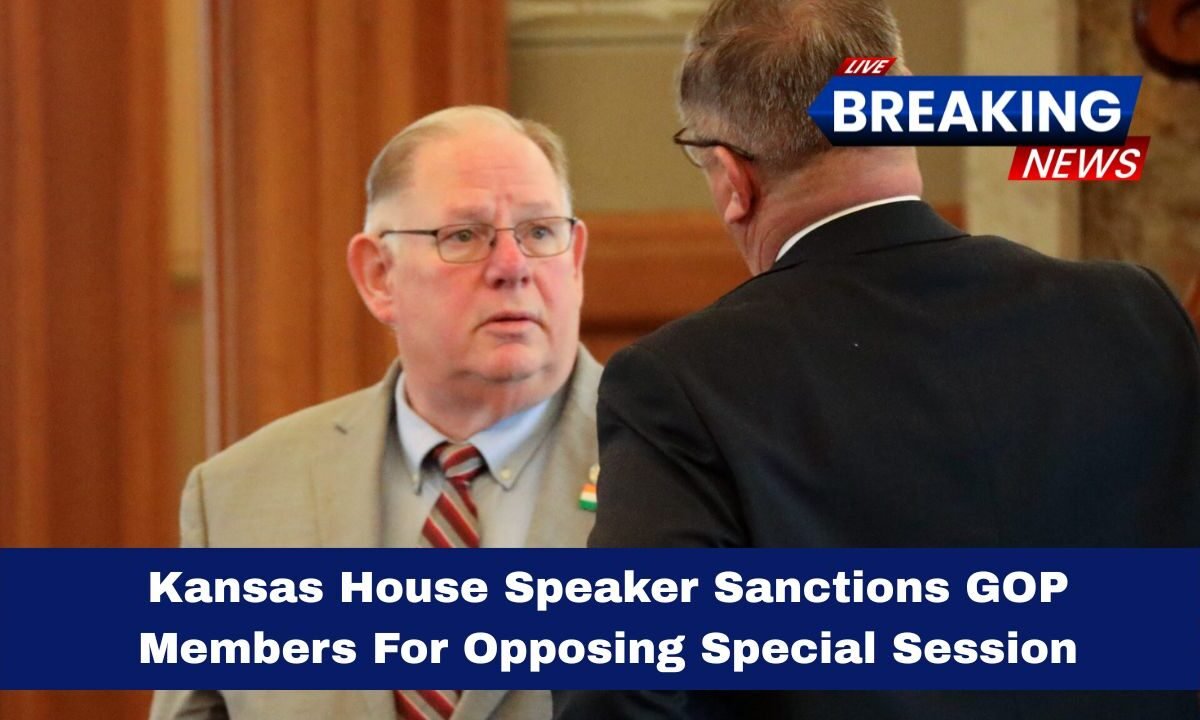In a dramatic move this week, Dan Hawkins, Speaker of the Kansas House of Representatives, imposed major leadership changes within the Republican caucus after a number of GOP members refused to support his push for a special legislative session.
The showdown centres on a bid to redraw U.S. House district lines ahead of the 2026 mid-term elections.
What Happened?
Speaker Hawkins sought to convene a special session to address mid-cycle redistricting and other priority items.
To trigger such a session in Kansas, a petition signed by two-thirds of members in both legislative chambers is required.
While Hawkins secured strong support in the Senate, the House effort collapsed when several Republicans refused to sign.
Because of the shortfall, the special session was called off — and in response, Hawkins stripped multiple committee chairs, vice-chairs and members of their roles.
He described the refusal to sign as “undermining our agenda” and announced the changes as part of restoring internal discipline.
Key Figures & Facts
Here are the major numbers and names involved:
| Item | Detail |
|---|---|
| Target signatures in House | 84 (two-thirds of 125 members) |
| Signatures obtained by Hawkins’ petition | 78 Republican House members |
| Number of Republicans who refused to sign | Approximately 10 |
| Cost estimated for the special session funding set aside | ~ $460,000 |
| Number of leadership removals announced | 5 (3 chairs, 2 vice‐chairs) + additional committee reassignments |
| Scheduled next regular legislative session start date | January 12, 2026 |
Who Lost Their Posts
Speaker Hawkins announced the removal of three chairs and two vice‐chairs from committee leadership:
- Chair of Higher Education Budget removed
- Chair of Veterans & Military Affairs removed
- Chair of Legislative Modernization removed
- Vice Chair of Higher Education Budget removed
- Vice Chair of Transportation & Public Safety Budget removed
In addition, certain committee members aligning with the dissent were reassigned or removed entirely.
Hawkins warned further sanctions may follow before next year’s session if loyalty lapses continue.
Why the Special Session Mattered
The special session was intended to accomplish two major objectives:
- Mid-cycle redistricting: The Republicans aimed to redraw U.S. House districts in Kansas to create a more favourable outcome ahead of 2026, targeting the solitary Democratic U.S. Representative in the state.
- Other high-profile items: Speaker Hawkins also linked the special session to action on rural health funding, potential changes to gender-marker rules on driver’s licences, and property tax relief.
The cost of convening outside the regular session (budgeted at around $460,000) added pressure, particularly given critics who argued the matter could wait until January.
What This Means Politically
The leadership purge sends a clear message: internal discipline will be enforced, and dissent on major strategic priorities may lead to consequences. For the House GOP, two immediate implications stand out:
- Redistricting deferred: Without the special session, the redrawing of maps will now wait until the regular session beginning January 12, 2026, giving opponents more time to prepare.
- Party unity tested: The revolt by some Republicans suggests that even within a single party there are divergent views on strategy, risk and timing — especially when major political stakes like redistricting are involved.
Implications for the House Delegate Map
The redistricting effort is fundamentally tied to the next U.S. House elections. By attempting a mid-cycle redraw, Republicans sought to restructure districts — especially in populous Johnson County — to reduce the electoral prospects of the Democrat in Kansas’ delegation.
With the special session now off the table, that strategy is paused, but the intent remains alive for the 2026 cycle.
The move by Speaker Dan Hawkins to strip leadership positions from fellow Republicans marks one of the most significant internal discipline actions in the Kansas House this session.
While the special session on redistricting and other priorities did not materialise, the signal is clear: leadership expects alignment on high-stakes initiatives, and the window remains open for future efforts.
As lawmakers regroup for the regular January session, the broader question will remain — can the Republican majority restore unity, or will this rift reshape the state’s political trajectory heading into 2026.




